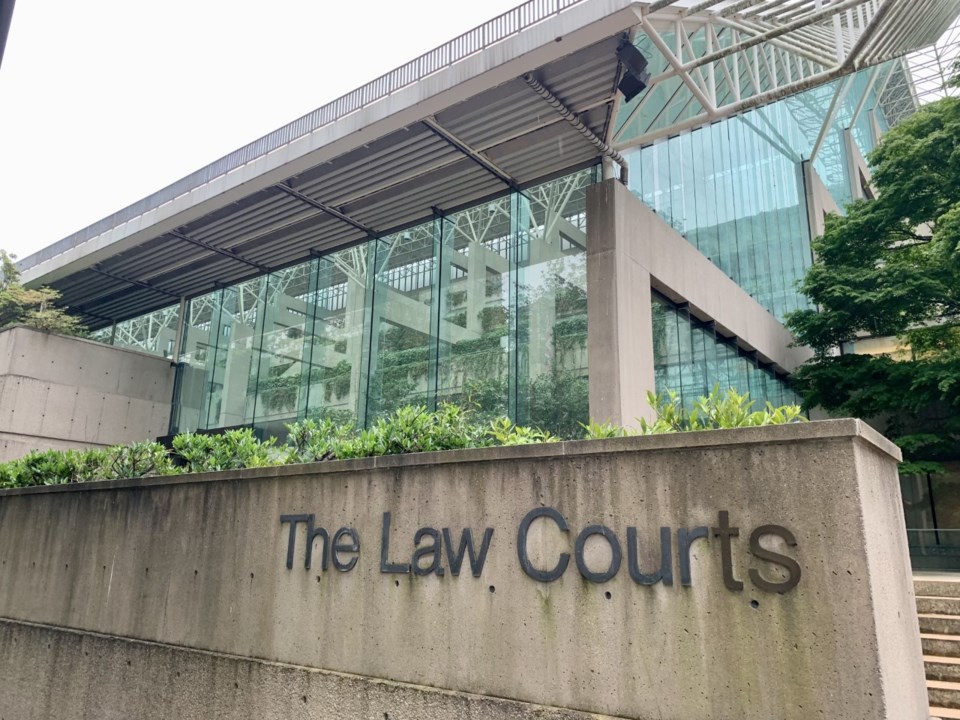A 52-year-old man who claimed a Burnaby car crash six years ago has rendered him unable to work for the rest of his life has been awarded nearly $90,000 by a judge who described him as an "unreliable and non-credible witness."
Mamoun Fares Shebat sued Zhang Zhang for debilitating physical and psychological injuries he said he sustained in a crash at an intersection at Mary Avenue and Edmonds Street in June 2018, according to a B.C. Supreme Court ruling last week.
Justice Elliott Myers noted Shebat, Zhang and a third, independent witness who testified gave "completely different versions" of the accident and what happened right after.
Myers ultimately ruled both parties had "failed to exercise due care" and assigned 75 per cent of the blame to Shebat and 25 per cent to Zhang.
Zhang conceded Shebat had sustained whiplash-type soft tissue injury because of the crash, but Shebat said the incident had rendered him incapable of working for the rest of his life.
He blamed the crash for ongoing mental health problems, including PTSD, depression and anxiety, as well as poor sleep, chronic headaches, pain in his neck, shoulders and back, nausea, confusion and clumsiness, according to the ruling.
Shebat painted a "very bleak picture of his life and abilities" for the court, Myers said.
"He said that he spends most of the time in his house; he does not leave the house; he takes his medications and when he is depressed he spends from four to six hours in a darkened room by himself. He said this happens 'every day,'" stated the ruling.
But video surveillance and Shebat's own social media posts after the accident told the different story.
Social media posts show him travelling on his own and with his family to Saudi Arabia, Jordan, Switzerland and Victoria, and posing for photos in places he would have to have reached by walks or hikes, according to the ruling.
And, even though he told doctors he hasn't been able to cook, clean, bank, drive or even walk much since the 2018 crash, video surveillance captured him jogging across a street, driving in the dark and snow, and picking up his grandchildren from school.
Myers pointed to multiple discrepancies in Shebat's testimony, including his description of what happened right after the crash.
He said he lost consciousness and woke up lying on the ground surrounded by firefighters, one of whom cleaned blood from his nose.
But Zhang and the independent witness said no firefighters were ever at the scene, and a deputy fire chief testified there was no record of the department having been dispatched to the scene.
Shebat's testimony about other factors that could have caused his symptoms was also found to be unreliable, according to Myers.
Zhang's lawyers argued Shebat's mental health and ear problems could have been caused during his time in the Syrian military or during the Syrian civil war before he and his family fled the country.
Shebat testified he had never fired a gun during his time in the military and that he did not experience bombings or other violence during the war, but he told the Burnaby NOW in 2017 that he had lived in Daraa, ground zero for the war and that every night bombs went off and they could be heard from his house.
And Myers said Shebat's claim that he never fired a gun in the military was not believable.
Myers further pointed to the fact that, during a lunch break while he was being cross-examined about his social media posts, Shebat deleted several selfies that contradicted what he had said about his disability.
He also received COVID benefits he wasn't entitled to, according to the ruling.
"I find that Mr. Shebat is neither credible nor reliable," Myers said.
In the end, Myers rejected Shebat's claim that he had suffered lifelong injuries, but awarded him $60,000 for pain and suffering, $25,495 for loss of half a year's income and $4,163 for special damages.
Follow Cornelia Naylor on X/Twitter @CorNaylor
Email [email protected]



